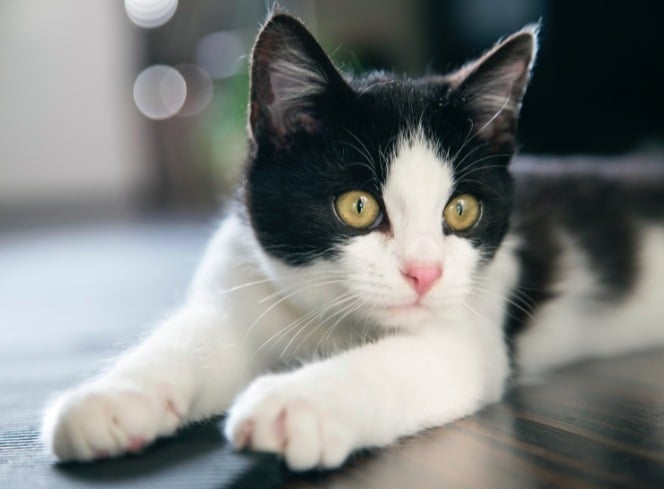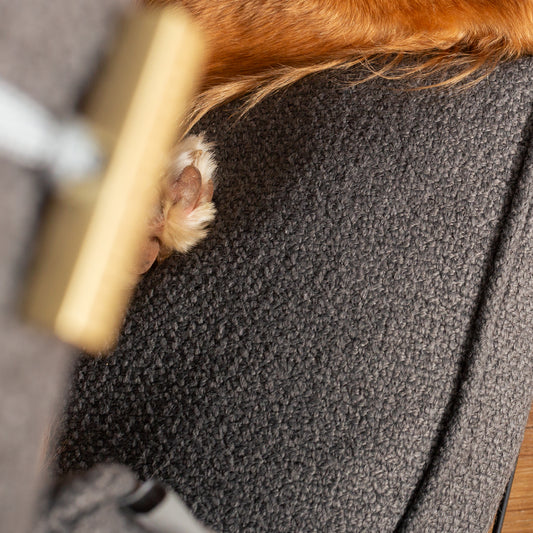Caring for your cat's teeth is an essential aspect of their overall health and well-being. Many pet owners are unaware that dental problems in cats can lead to serious health issues, including infections and even organ damage if left untreated. Below, we explore the best ways to maintain your cat's dental hygiene, including how to clean your cat’s teeth and how to keep your cat’s teeth clean without brushing, which is particularly useful for cats that may resist traditional dental care methods.
Why Dental Care Is Important for Cats
Your cat’s dental health plays a crucial role in their overall wellness. Cats, like humans, can suffer from dental problems such as gum disease, tooth decay, and tartar buildup. These issues can cause discomfort and pain and may lead to more serious conditions, such as infections that can spread to the kidneys, liver, or heart.
Common signs of dental problems in cats include:
- Bad breath (halitosis)
- Drooling
- Red or swollen gums
- Difficulty eating
- Loose or missing teeth
- Yellow or brown buildup on teeth
Addressing dental care early and regularly can prevent these issues from escalating and ensure your cat enjoys a healthy, comfortable life.
How to Clean Cats' Teeth: Best Practices for Brushing
Brushing your cat's teeth is one of the most effective ways to prevent dental issues. However, not all cats will tolerate having their teeth brushed, so it’s important to introduce this practice slowly and gently.
-
Start Early and Be Patient: The earlier you start brushing your cat’s teeth, the more likely they are to accept the process. If you have a kitten, begin handling their mouth gently to get them accustomed to you touching their teeth and gums. If your cat is older, start by getting them used to the sensation by touching their mouth and teeth with your finger.
-
Use Cat-Specific Toothpaste and Toothbrush: Never use human toothpaste on your cat, as it can be harmful if ingested. Instead, choose a toothpaste formulated specifically for cats, which often comes in flavours like poultry or fish to make the experience more pleasant for them. You’ll also need a toothbrush designed for cats, which typically has soft bristles and is smaller to fit comfortably in their mouth.
Alternatively, you can use a finger brush that slips over your finger, which may be easier to manoeuvre in your cat's mouth, especially for beginners.
-
Introduce Brushing Gradually: Take it slow when introducing brushing. Start by letting your cat lick the toothpaste off your finger, so they get used to the taste. Then, gradually progress to touching the toothbrush to their teeth. Once your cat is comfortable with the toothbrush, gently brush in small circular motions, focusing on the outer surfaces of the teeth where plaque tends to accumulate.
Aim to brush your cat's teeth two to three times per week, if possible. Consistency is key, but even brushing once a week can make a difference.
- Positive Reinforcement: Make the experience as positive as possible by rewarding your cat with treats or praise after each session. This will help them associate tooth brushing with something enjoyable, reducing their resistance over time.

How to Keep Cats' Teeth Clean Without Brushing
If brushing your cat’s teeth proves too difficult or stressful, there are alternative methods to help maintain their dental health. Here are some effective ways to keep your cat's teeth clean without brushing:
-
Dental Treats: There are specially formulated dental treats available that can help reduce plaque and tartar buildup on your cat’s teeth. These treats are designed to have a texture that scrapes away plaque as your cat chews, promoting better oral hygiene.
-
Dental Diets: Certain cat foods are designed to promote dental health by reducing plaque and tartar. These foods typically have larger kibble sizes, which encourage cats to chew more, and contain ingredients that help to clean the teeth as they eat.
-
Chew Toys: Providing your cat with chew toys can help keep their teeth clean naturally. Chewing on toys helps to remove plaque and tartar from the teeth, much like dental treats. Choose toys that are specifically designed for dental care, as they are made to withstand your cat’s chewing and have textures that promote tooth cleaning.
-
Water Additives: Water additives are another way to keep your cat’s teeth clean without brushing. These products are added to your cat’s water bowl and contain ingredients that help reduce plaque buildup and freshen breath. They are easy to use and can be particularly beneficial for cats who won’t tolerate other forms of dental care.
- Dental Wipes: If brushing isn’t an option, dental wipes can provide a less invasive way to clean your cat’s teeth. These wipes are designed to be rubbed along your cat’s teeth and gums to help remove plaque and bacteria. While not as effective as brushing, dental wipes are a great alternative for cats that refuse a toothbrush.
Recognising When Your Cat Needs Professional Dental Care
Even with regular at-home dental care, some cats may still develop dental issues that require professional attention. Your veterinarian will assess your cat’s dental health during routine check-ups and may recommend a professional cleaning if needed. Here are some signs that indicate your cat might need professional dental care:
- Persistent bad breath
- Visible plaque or tartar buildup
- Red, swollen, or bleeding gums
- Drooling or pawing at the mouth
- Difficulty eating or refusal to eat
- Loose or missing teeth
If you notice any of these symptoms, it’s important to consult your veterinarian. Professional dental cleanings under anaesthetic allow your vet to thoroughly clean below the gum line and address any dental issues before they worsen.
Preventing Dental Issues in Cats
In addition to regular dental care, there are other steps you can take to prevent dental problems in your cat:
- Routine Vet Visits: Schedule regular check-ups with your vet to monitor your cat’s dental health. Your vet can identify any potential issues early and recommend treatments.
- Monitor Diet: Ensure your cat is eating a balanced diet that supports dental health. High-quality dry food can help scrape plaque off the teeth, while certain wet foods are formulated to support oral hygiene.
- Hydration: Keeping your cat hydrated is important for their overall health, including their dental health. Make sure they have access to fresh water at all times.
Caring for your cat’s teeth is essential for maintaining their overall health and comfort. Whether you choose to brush their teeth regularly or opt for alternative methods like dental treats, toys, or water additives, there are plenty of ways to keep your cat’s teeth clean and prevent dental problems. By being proactive and consistent with your cat’s dental care, you’ll help them avoid painful dental conditions and enjoy a happy, healthy life.




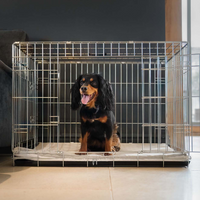











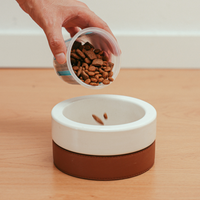





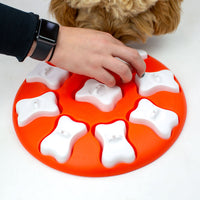


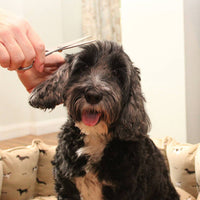

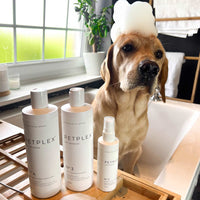

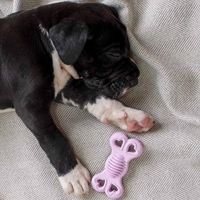




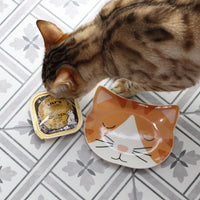

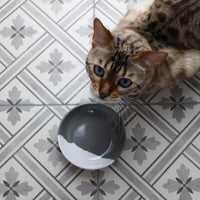
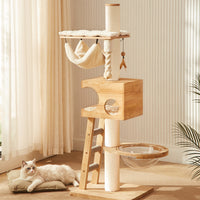
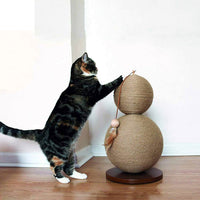


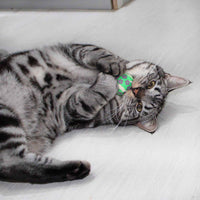
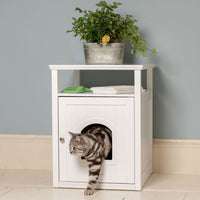
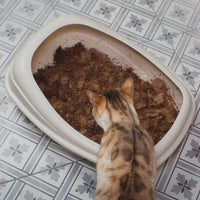
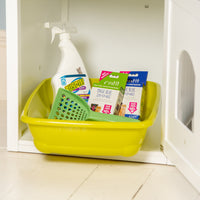
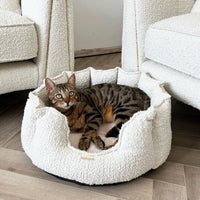

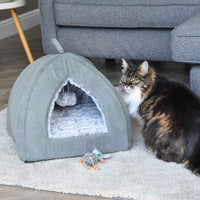
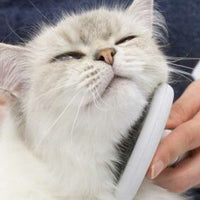













.jpg?v=1725440760488&options=)








